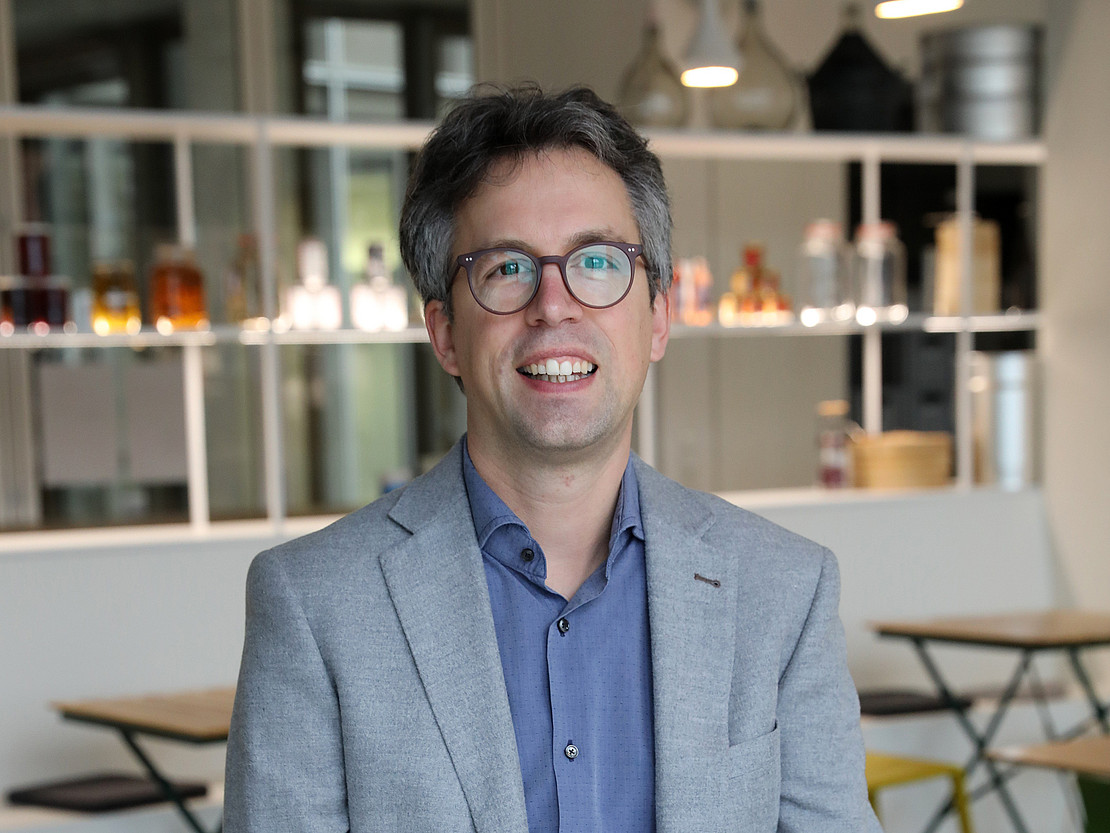This page contains automatically translated content.
"North Hesse has the potential to become Sustainable Valley"
 Image: Andreas Fischer
Image: Andreas Fischer"The university has a new Presidential Board, committed students and researchers with innovative ideas, is currently building a unique center for sustainable transformation, and civil society movements such as Scientists for Future are also setting the direction," says Opper, describing the starting point. "The university and the region are also strong in other areas, such as the mobility sector or innovative materials, to name just two examples." Together with partners from civil society and business, science must address the challenges of our time: "The big questions are so complex that we can usually only solve them together. And this is how knowledge transfer should be - dialogical, transdisciplinary, design-oriented and sustainable," he concludes, adjusting his horn-rimmed glasses. This is also what the University's transfer strategy stands for, which the University Senate adopted in November 2021 and which Opper has already been involved in. Traditional core areas such as patents and start-ups are the main pillars of transfer, but other elements are also included: "Kassel is a start-up and ideas university, which includes technological as well as social and cultural innovations. We want to strengthen this."
Opper comes from Kassel. For him, the new role is combined with a return home, together with his partner. He studied politics, sociology and media studies in Göttingen, Hamburg and Berkeley (USA) and worked as a journalist. As head of the Bucerius Lab of the ZEIT Foundation in Hamburg, he has spent the last ten years bringing science and society into a dialog, for example on digital change, the central driver of change. The fact that the University of Kassel is setting up a center focused on the 17 Sustainable Development Goals made him prick up his ears. The topic offers a great opportunity to flank research and teaching on sustainability with transfer; after all, it is about concrete solutions for a world worth living in tomorrow.
Disruption in the region
"I begin my task with humility before the achievements of the still young University of Kassel. A lot has been achieved in recent years, for example the Science Park, where UniKasselTransfer is now based. I would like to use my experience and interests to make a personal contribution to my home region of North Hesse," he says with a smile. He can rely on a "well-established team at a great institution", as he knows. "In order to continue and develop the existing successful services and structures, we need an integrating concept of leadership. I see myself like a coach of a soccer team: you can only win if you have a strong team that plays the ball forward." This also applies to cooperation with the region. Disruptive challenges are also being felt in northern Hesse in particular: climate change, the transformation of the economy, digitalization and social cohesion.
"At the same time, North Hesse has great potential to make sustainability a guiding principle and perhaps one day become a 'Sustainable Valley' - between Wilhelmshöhe and Hoher Meißner," says Opper, describing his vision. UniKasselTransfer is already taking some steps in this direction: a crowdfunding campaign will be launched in spring to promote projects for Kassel as a "Smart City". As part of the Year of Science 2022, a trialogue between science, culture and the public on the relationship between humans and nature will take place at the Staatstheater under the motto "Nachgefragt!". During the Documenta summer, an exhibition will present ideas from the university for the world of tomorrow. "We are showing: There is a lot of potential slumbering here in the middle of Europe. At the same time, we are promoting science as a reliable point of orientation in an insecure society," summarizes Daniel Opper.
This article appeared in the university magazine publik 2022/1. Text: Vanessa Laspe